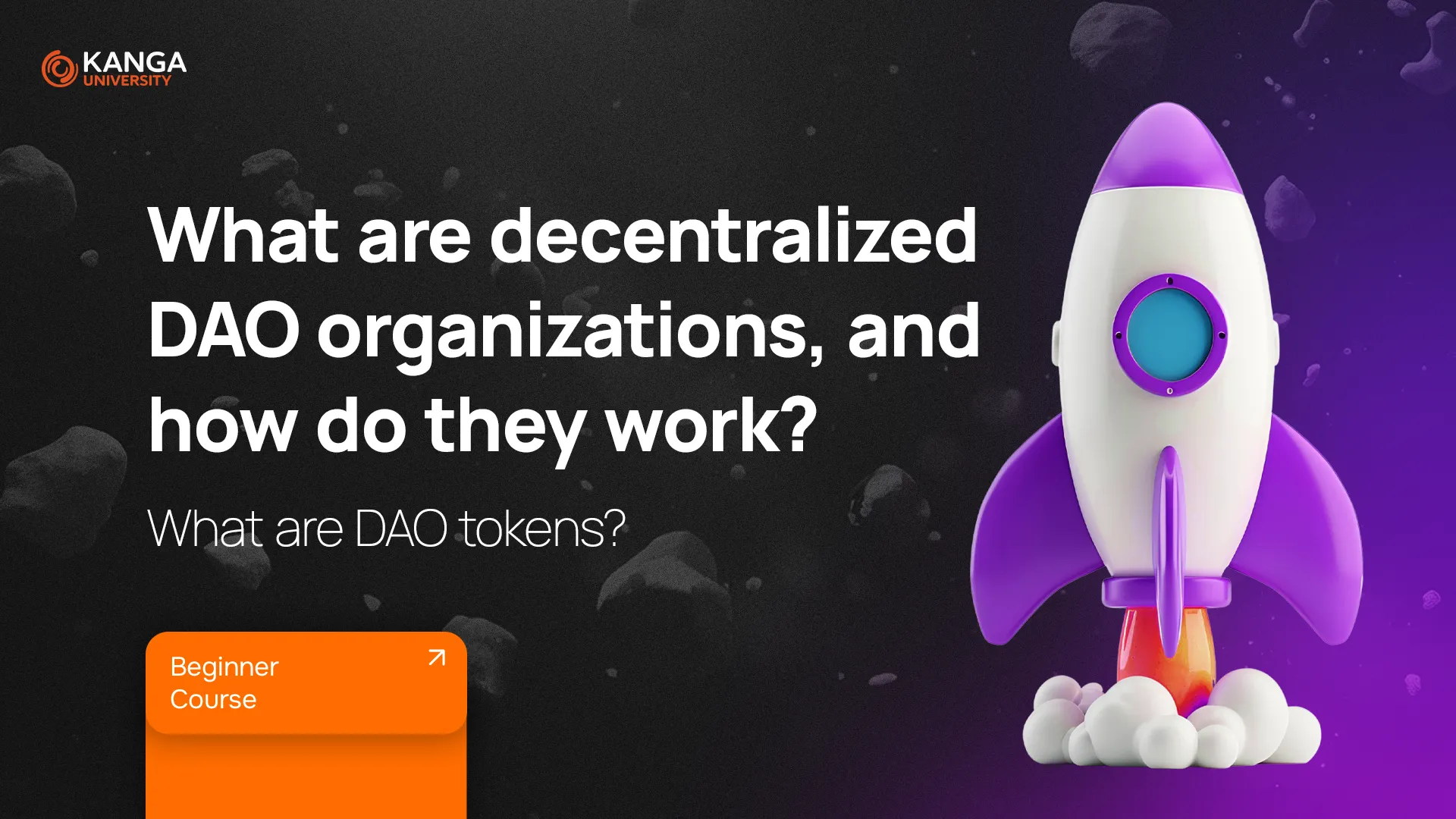
Imagine an organization that operates without traditional bosses or offices, where its rules are written in computer code accessible to everyone. This is what a Decentralized Autonomous Organization (DAO) is. Thanks to blockchain technology, DAOs enable people from around the world to collaborate in a transparent and democratic way.
How Do DAOs Work?
DAOs function based on smart contracts—computer programs that automatically execute specific actions when predefined conditions are met. Members of a DAO hold special tokens that grant them voting rights on matters related to the organization. The more tokens you have, the greater your influence on decisions.
Key Features of DAOs:
- No central authority: Decisions are made collectively by all members.
- Transparency: All actions and transactions are publicly accessible thanks to blockchain technology.
- Global reach: Anyone with internet access and the necessary tokens can join a DAO.
Advantages of DAOs
- Democratic governance: Every member has a say in decision-making, proportionate to the number of tokens they hold.
- Transparency: All decisions and transactions are visible to everyone, which builds trust among members.
- Engaged community: People from different parts of the world can collaborate towards common goals.
Challenges and Risks of DAOs
- Technological complexity: To fully participate in a DAO, a basic understanding of cryptocurrencies and blockchain technology is required.
- Security risks: Errors in smart contract code can lead to financial losses or other issues.
- Time-consuming decision-making: The democratic decision-making process can be slower compared to traditional organizations.
Popular DAO Projects (as of February, 2026)
1. Curve DAO (CRV)
Curve remains the “high-speed highway” for stablecoins, but by 2026, its role has expanded into Lending-Liquidation (LlamaLend). Following upgrades to its architecture, Curve has become a primary hub for institutional borrowing against Liquid Staking Tokens (LSTs). While the original “Curve Wars” have stabilized, the protocol has reinforced its resilience against flash-loan attacks and remains the critical liquidity provider for the latest generation of algorithmic stablecoins.
2. Lido DAO (LDO)
Lido is no longer just a “parking lot” for ETH; it is the cornerstone of Ethereum’s network security. In early 2026, Lido DAO launched its V3 expansion, introducing modular stVaults that allow institutions to create customized staking strategies. The DAO now manages the integration of Distributed Validator Technology (DVT), further decentralizing its validator set to maintain market dominance in liquid staking while supporting network health.
3. Uniswap DAO (UNI)
This is a historic moment for Uniswap. Following the successful implementation of Uniswap v4 and the long-awaited “fee switch” in early 2026, the protocol has shifted from being a purely governance-based token to a direct value accrual model. Protocol fees now flow into programmatic UNI supply reductions, effectively aligning token holder interests with the growth of the largest decentralized exchange in the world.
4. Aave DAO (AAVE)
Aave has transformed into a cross-chain banking system. As of February 2026, Aave V4 is the primary development focus, utilizing a hub-and-spoke model to handle massive liquidity across multiple networks. The DAO now manages the Aave App, which aims for one million users, and a native stablecoin (GHO) that has gained widespread cross-chain adoption. Recently cleared of regulatory investigations, the DAO is now focused on institutional growth and its Horizon project.
5. Sky (formerly MakerDAO)
The most significant change in the DAO landscape: as part of the “Endgame” plan, MakerDAO has fully rebranded to Sky. The legacy MKR token can now be upgraded to SKY (at a 1:24,000 ratio), and the DAI stablecoin can be converted 1:1 to USDS. The system is now organized into “Stars” (formerly SubDAOs)—specialized, independent units that manage specific asset classes under the broader Sky Protocol governance.
6. Arbitrum DAO
Arbitrum DAO has moved beyond managing a single L2 network. It now oversees the Orbit ecosystem (L3 chains) and manages a treasury worth billions. A major decentralization upgrade scheduled for 2026 is introducing ARB staking, allowing token holders to help secure the sequencer and potentially share in sequencer profits. This move transforms ARB from a simple governance token into a yield-bearing asset.
7. Optimism Collective (OP)
The “Superchain” vision is now a reality. The Optimism DAO manages a unified standard used by major networks like Base (Coinbase), World Chain, and Zora. In early 2026, the collective moved to introduce OP token buybacks, fueled by revenue from the various chains in the Superchain ecosystem. Its RetroPGF program remains the world’s largest decentralized fund for supporting open-source software and public goods.
Estimated DAO Token Prices (As of February 5, 2026):
-
Curve DAO (CRV): ~$0.42
-
Lido DAO (LDO): ~$0.41
-
Uniswap (UNI): ~$14.20
-
Aave (AAVE): ~$285.00
-
Sky (Governance Token): ~$0.08 – $0.10 (Based on MKR redenomination)
-
Arbitrum (ARB): ~$1.15
-
Optimism (OP): ~$2.45
Approximate DAO Token Prices (Status: November 20, 2025):
Curve DAO (CRV): ~$0.55 USD
Lido DAO (LDO): ~$2.10 USD
Uniswap (UNI): ~$10.50 USD
Aave (AAVE): ~$210.00 USD
MakerDAO (MKR): ~$2,400.00 USD
Note: Cryptocurrency prices are highly volatile, and the values provided are for informational purposes only.
Summary
DAOs are an innovative way to organize collaboration between people worldwide without the need for central management. Thanks to blockchain technology, they offer transparency, democratic governance, and global reach. However, before joining a DAO, it’s essential to understand how they work and be aware of potential risks and challenges.